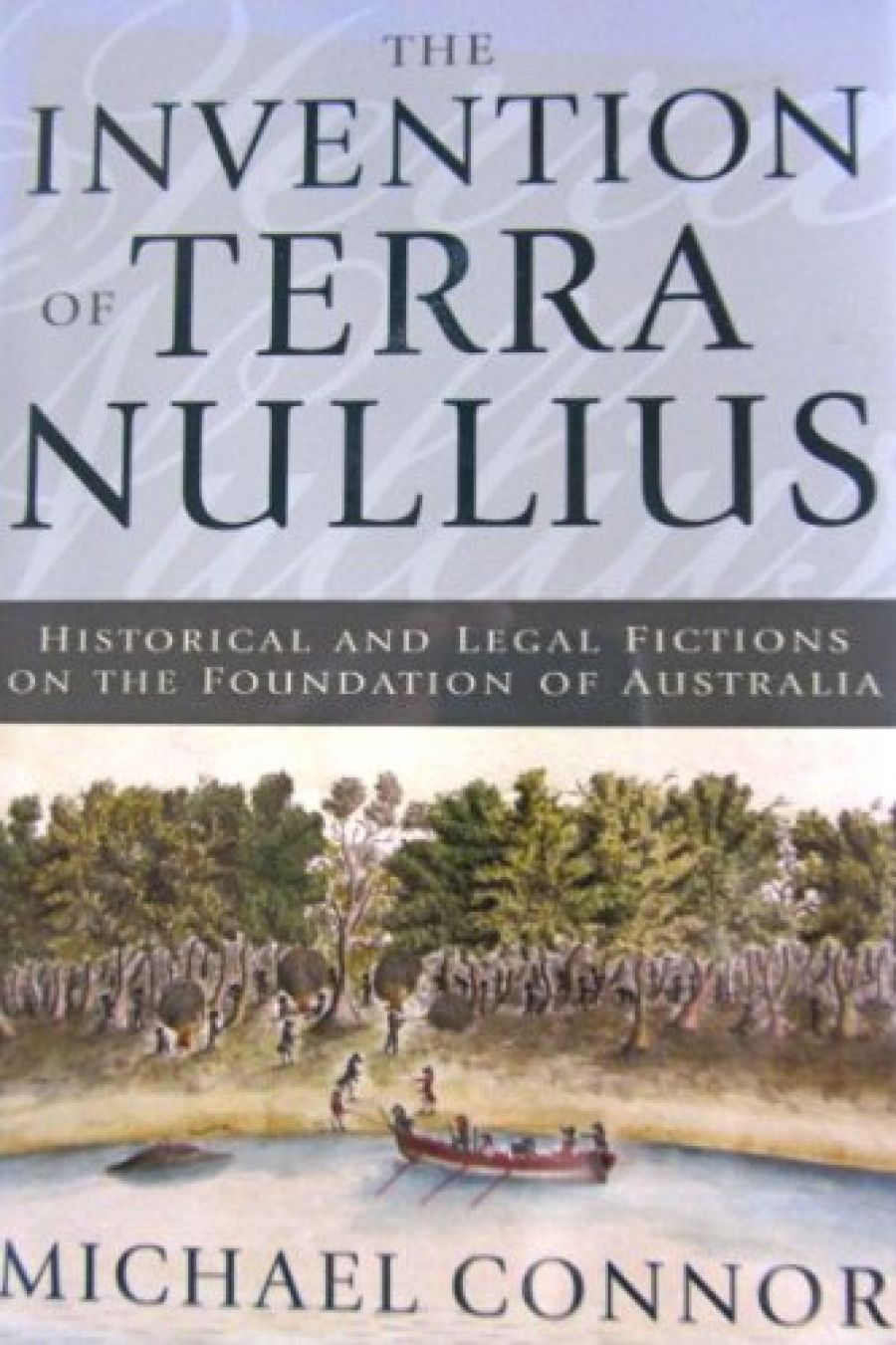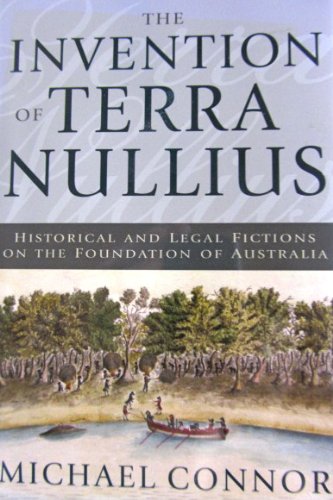
- Free Article: No
- Custom Article Title: Dr Frankenstein’s school of history
- Review Article: Yes
- Article Title: Dr Frankenstein’s school of history
- Online Only: No
- Custom Highlight Text:
If any scholar has written anything worthwhile on Australia’s early colonial history, it is unlikely to be mentioned in this book. In Michael Connor’s depiction, things have become so bad that all the historians, lawyers, anthropologists, sociologists and health experts, and everyone else who has written or spoken publicly about our history over the last thirty years, should be sacked immediately. So too should staff in the departments of education, in the Australian Research Council, and all their national and international academic peer reviewers. Recent PhD graduates should be asked to give back their degrees, as they have not been properly trained. Many historical research assistants should never be given jobs again. The appellations ‘associate professor’ or ‘professor’ should be removed from office doors. Historians of the Australian academy do not deserve them. The first targets should be the most prolific and popular historians. And finally, tenure and terra nullius should be banned.
- Book 1 Title: The Invention Of Terra Nullius
- Book 1 Subtitle: Historical And Legal Fictions On The Foundation Of Australia
- Book 1 Biblio: Macleay Press, $39.95 hb, 362 pp
- Book 1 Cover Small (400 x 600):

- Book 1 Cover (800 x 1200):

Within these pages, the rubbishing and ridiculing of ‘old historians’ – the term Connor uses for virtually all other historians – takes on the character of a new blood sport. While The Invention of Terra Nullius: Historical and Legal Fictions on the Foundation of Australia contains flashes of potentially convincing, even pithy, arguments, the author is seriously prone to distraction. One minute he is studiously reflecting upon turgid quotes from eighteenth- and nineteenth-century sources; the next minute there’s static, and it is as though he has tuned into the Alan Jones show.
It sounds something like this: ‘Let’s get the boot into those Café Latte academics! Those snobs are making their careers out of obscure Latin words! Did you know that one professor travels Business Class? No wonder they won’t admit that Aborigines were cannibals!’ Compared with the noxious cult-members of the Dr Frankenstein School of History, Latin-speaking gladiators and cannibals are actually looking like an amiable lot. Think I’m exaggerating? Connor expands:
Land, for modern political reasons, came to dominate the old historians’ interpretation of the colonial period and, as they performed painful operations on Australia’s living body, these magician’s apprentices dragged from its copious guts a miscellaneously assembled selection of government papers, lawyers’ pleadings, judges’ decisions, individuals’ letters and diaries, sermons, newspaper letters and editorials. These willing but inept surgical experimenters were unable to successfully assemble the bloody parts into a new creature for the patched and recycled organs they used functioned quite differently in the body of their original owner. Their attempt to bring the monster to life by torturing terra nullius to pump dark blood along its plastic veins led to confusion, pain, and deadliness.
Indigenous oral histories are omitted from the contents cited above. Yet earlier, Connor aims some vicarious digs at anthropologist and historian Deborah Bird Rose, asserting that Hobbles Danaiyarri, an indigenous elder of the Victoria River district, was mocking her. Although Connor is keen to castigate historians who have not twice inspected every relevant historical primary source around the country for commas, he makes no mention of cross-checking the relevant original recordings. As well as spuriously inventing Danaiyarri’s thoughts, he mocks Rose’s supposed ‘tone of superiority ... typical of many of the younger old historians’, and goes on to lampoon some massacre stories.
A child of history who trained at James Cook University and the University of Tasmania, the mature Connor has divorced virtually his entire ‘history family’. He rejects much significant and prize-winning scholarship in the country, jokily jettisoning Alan Atkinson’s two-volume The Europeans in Australia (1997, 2004) as an ‘erudite fish and chip history’. So what are we left with? If all the other efforts in this country are so untrustworthy, surely the reader will find it difficult to place their faith in any scholar, Connor included.
The main arguments that I gleaned from The Invention of Terra Nullius are as follows: many authors have been confused about what the term terra nullius means; they are confused about the Latin via French translation; they are confused about when the term commenced usage, and about how it came to be used at all. Unfortunately, Connor’s Invention creates many new levels of confusion. While the whole book concerns connections between law and history, Connor earlier opposes the two fields getting mixed up with each other at all. He discourages other scholars from joining in his enthusiasm to scrutinise terra nullius; the topic is declared unsafe in the hands of ARC-funded scholar Andrew Fitzmaurice.
Towards the end of the book, Connor comes up with some constructive, albeit not unfamiliar, suggestions: ‘Invasion and settlement’ should be used rather than ‘invasion or settlement’. ‘Discovery’ of Australia should be used without its unpatriotic inverted commas. ‘Annexation’ should be used to describe the legal basis of Australian settlement, not ‘terra nullius’.
This beautifully produced and attractive-looking book, with its intriguing painting of the spearing of Governor Phillip (though possibly at the wrong beach) on the cover, would have benefited from more editorial power and attention. A good editor might have checked the several reader-baffling paragraphs where quotes did not match the preceding argument. A strong editorial hand would have removed the hyperbolic diatribe. This paragon might also have recommended against personal and professional abuse that smacks of vindictiveness or at least sour grapes. If only Connor had omitted some of his vituperations on the miscellaneous sins and omissions of his former family, he would have found plenty of room for some good, old-fashioned historical narrative.
In my view, the book could have done some useful history telling about ‘the use and abuse of terra nullius’ or, alternatively, about the possibility of ‘sovereignty and occupation’ as the basis of British colonisation. In the additional space, Connor could have paid more attention to the ‘big questions’ about Australia’s occupation. For example, the linchpin question pertaining to British ‘beginnings’ remains: when, in claiming parts of the continent, Captain Cook was specifically instructed to obtain the consent of the natives, why did he not do so? And why were his actions
considered acceptable back home? Cook generally followed his instructions carefully, down to the ritually and legally significant erection of flags on what we now call Australian soil. If, as Connor recommends, terra nullius should be dumped along with the ‘old historians’, Australians will be left wondering what were the other justifications the British used to explain the matter? And why was Australia so different from other British colonies?
Pre-Mabo, and pre-Alan Frost, one of the enigmas of terra nullius was its legal and historical invisibility. In dedicating a whole book to the topic, and providing innumerable examples of discussions relating to its conceptual underpinnings for several centuries, Connor has successfully raised the terra nullius flag for all to see.
For those who entertain a historical conspiracy by bleeding hearts, tell them to have another look at two articles published in 1981 by Historical Studies (Vol.19, No.77), under the editorial hand of Dr J.B. Hirst: Alan Frost’s ‘New South Wales as Terra Nullius: The British denial of Aboriginal Land Rights’ and ‘“Far more happier than we Europeans”: Reactions to the Australian Aborigines on Cook’s voyage’. Humanist in tone, neither is particularly preachy or conspiratorial. Frost was at pains to try to understand the thinking of Cook and Joseph Banks, whom he described as ‘percipient, tolerant of racial and cultural difference, and empathetic to a remarkable degree, far beyond the generality of their contemporaries … Rather than evil intent or callous disregard, however, this failure shows most the limitations that even a diverse culture can place on the most flexible of its members’. He is talking of ‘the British failure to negotiate with the Aborigines’, and it is clearly this late-eighteenth-century logic that he describes as terra nullius.
In a sense, the historians’ early encounters with terra nullius were a charitable way to understand the British philosophical and legal thinking and the European cultural context and traditions that underpinned this particular imperial takeover. Historians’ continuing willingness to take terra nullius on board their many ships is part of their ongoing effort to deal with that phrase, ‘the consent of the natives’. ‘Consent’ is a more troublesome passenger than terra nullius could ever be.
If, as Connor asserts, terra nullius has been ‘a plastic vein pumping dark blood’ and causing ‘pain, and deadliness’, we should be worried, but I am not sure what we should be most worried about. History is not a blood sport. While constructive critique is to be cherished, we need to get away from endless slanging-match adversarialism, and instead get onto writing more nuanced, well-researched, innovative and informative historical narratives. Best to start something new, like the significant stories of profound importance that the nation hardly knows.
Prime Minister John Howard’s calls for more history, and more chronological narrative content and indigenous history in school education, sound good. So too do the governor-general’s calls for Australia’s ancient human history to be taught in Australian schools. To heighten the content standards, and to encourage more students to study history, I suggest that national prizes to recognise excellence in history writing are long overdue. In the phasing-in period, perhaps some flight upgrades might be offered to improve morale? Deadly! I hope the historians haven’t all been sacked yet.


Comments powered by CComment